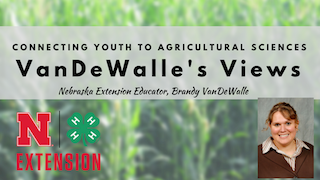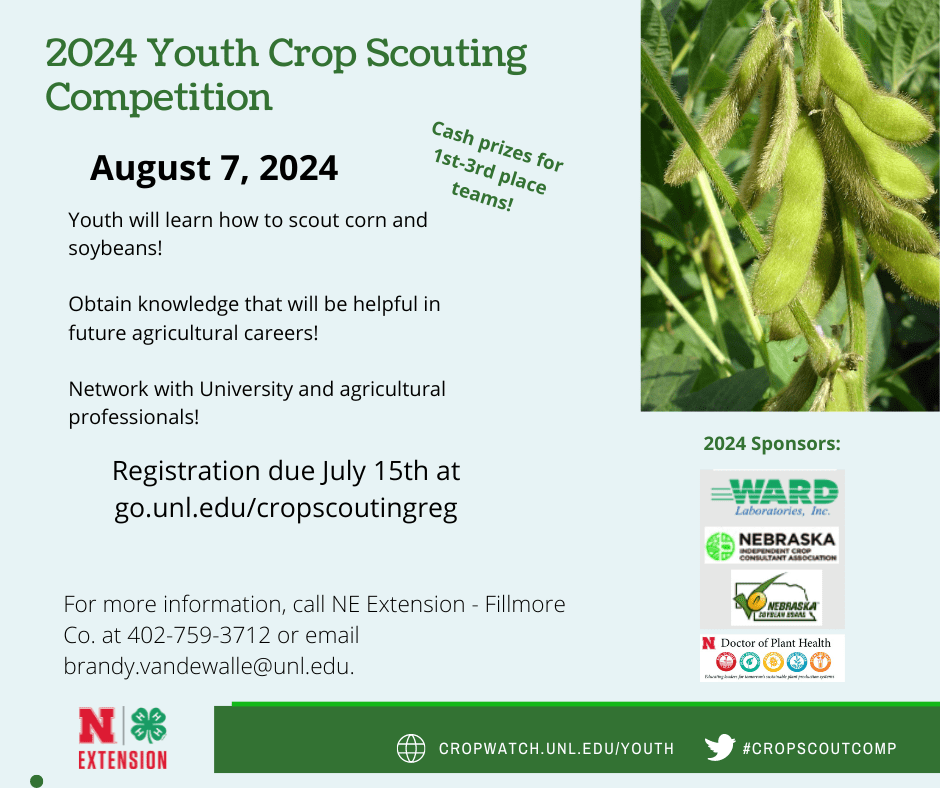Looking for a fun club project? Want to unite your club members? Running out of ideas for club meetings? If you answered, “yes” to any of these questions, help is on the way! Nebraska Extension is pleased to present the 11th annual Crop Scouting Competition for Nebraska youth. Youth interested in crops can learn about crop growth & development and basic crop scouting principles.
Don’t know a lot about crops? Ask a local agronomist to assist by providing a short lesson on crop production. You can have the agronomist meet with the youth a little during each meeting or outside of the meeting. This is one way to engage those youth interested in crops.
This contest will be held at the Eastern Nebraska Research & Extension Center near Mead, Nebraska on August 7, 2024. The event will include both indoor and outdoor events. Teams of junior high and high school students (those completing 5-12th grades) from across Nebraska are invited to participate. This event is limited to the first ten teams who sign up!
Clubs or other organizations may enter a team composed of three to five participants. An adult team leader must accompany each team of students. Team leaders could be FFA advisors, crop consultants, extension staff, coop employees, etc.
Top-scoring teams win prizes: $500 for first, $250 for second, $100 for third place. The top two teams will be eligible for the regional competition held in Nebraska this year.
Teams will be expected to know the basics of scouting corn and soybean fields. This includes crop staging; looking for patterns of crop injury; disease, insect and weed seedling identification; etc. Other topics may include but are not limited to, pesticide safety, nutrient disorders, and herbicide injury.
More information about the crop scouting competition and instructions on how to register a team are available online at cropwatch.unl.edu/youth. Register at: https://go.unl.edu/cropscoutingreg
Teams must be registered by July 15. This program is sponsored by Nebraska Independent Crop Consultant Association, Ward Laboratories, the Nebraska Soybean Board and Nebraska Extension.





